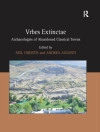Paradigms in Conflict presents an anthropologically grounded alternative to Culture History and Culture Ecology. By using principles derived from the ethnography of descendant (or closely related) peoples, the book explains three contemporaneous archaeological cultures in the High Plains and the Southwest of North America: High Plains Upper Republican, Apishipa, and Sopris. Rather than hunter/gatherers, High Plains Upper Republican people at the Wallace site were maize farmers as well as bison hunters. In contrast, Apishapa people were hunter/gatherers but were probably Numic speakers from the Great Basin, while Sopris people were not related to Apishapa but to the Tanoan group of Pueblo people. In keeping with their worldview, the rock art at the Wallace site reflected supernatural protection of shield-bearing warriors on the one hand and the cosmic origins of humanity on the other. Pilgrimages led by shamans provided the social context of rock art in the Apishapa valley, while Sopris rock art varied according to the concentric zones around the core of Pueblo-like villages: maize agriculture in zone 2, hunting shrines in zone 3 and rain control in zone 4. Our ethnographically informed approach helps to unite rock art with traditional dirt archaeology.
Thomas N. Huffman
Paradigms in Conflict: Cognitive Archaeology on the High Plains [PDF ebook]
Paradigms in Conflict: Cognitive Archaeology on the High Plains [PDF ebook]
Купите эту электронную книгу и получите еще одну БЕСПЛАТНО!
язык английский ● Формат PDF ● страницы 292 ● ISBN 9781685075996 ● издатель Nova Science Publishers, Inc. ● опубликованный 2022 ● Загружаемые 3 раз ● валюта EUR ● Код товара 8296216 ● Защита от копирования Adobe DRM
Требуется устройство для чтения электронных книг с поддержкой DRM












